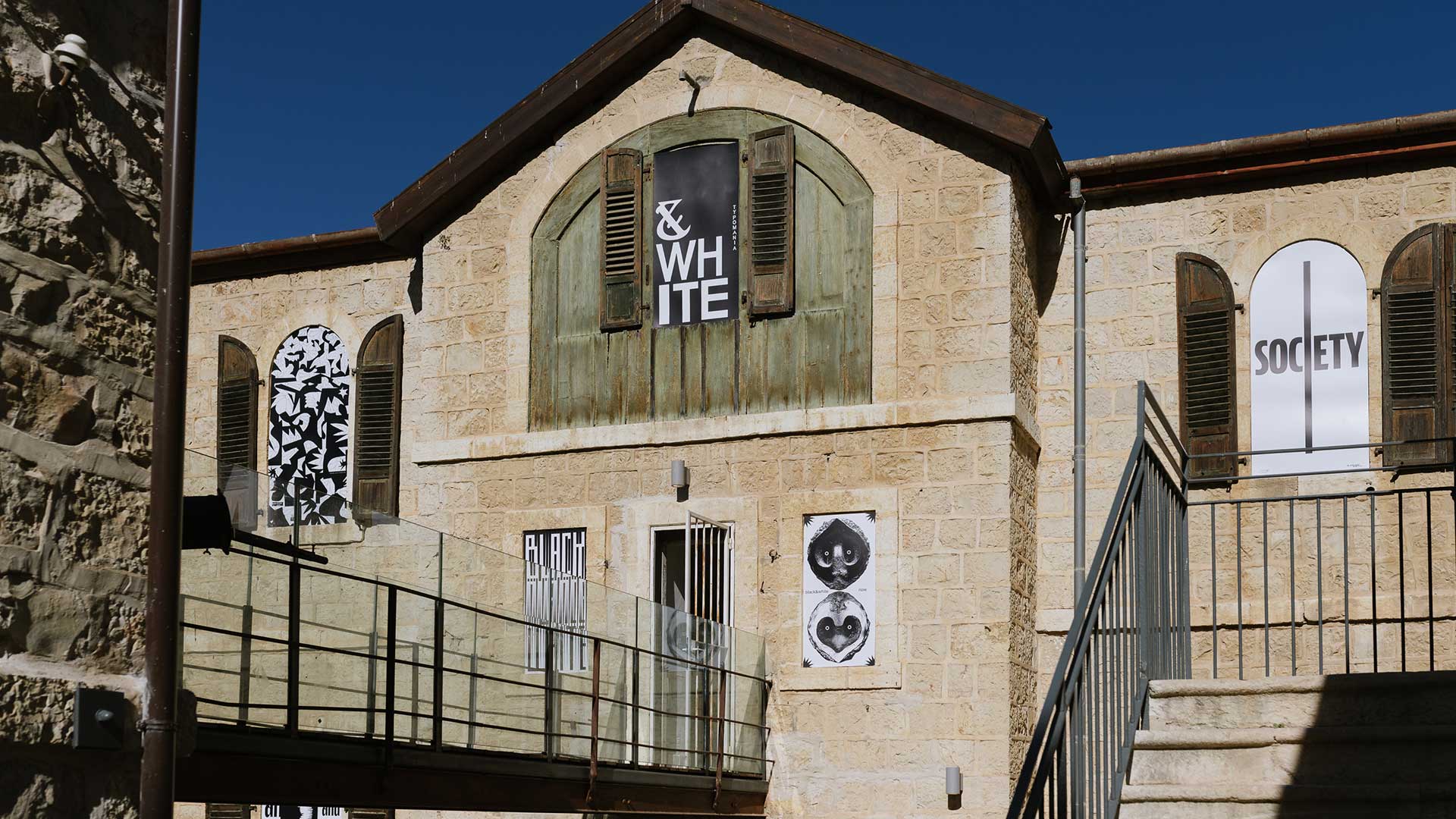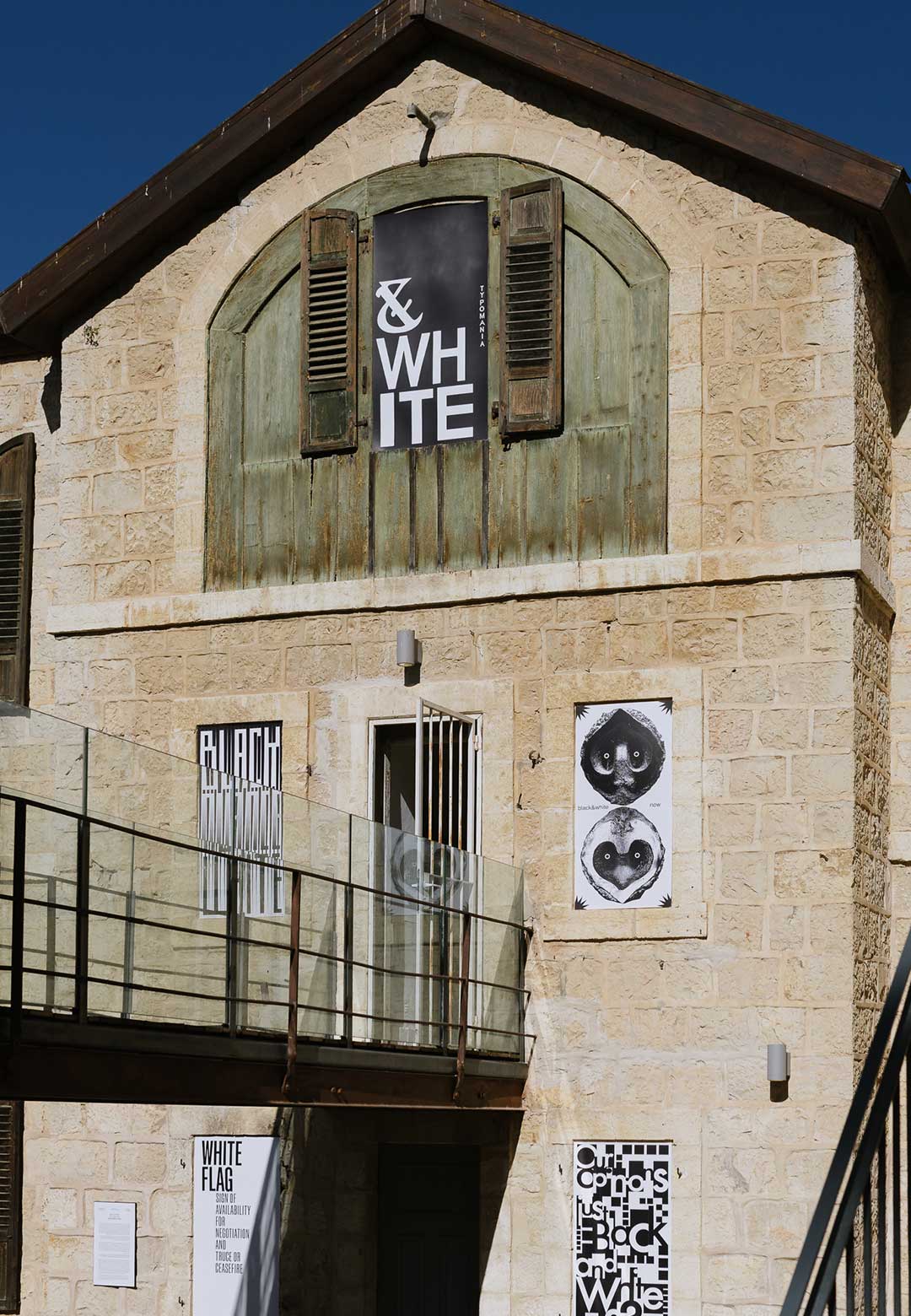The latest edition ofJerusalem Design Week (on from June 22 - 29, 2023) is being hosted at the historic Beit Hansen cultural centre in Israel's capital. Held annually, the event brings together stimulating design installations, collaborative projects, as well as intriguing performances that encourage the creative community to explore thought-provoking works that respond to an overarching theme. The ongoing 12th edition of the design festival is centred on the theme of Lies and Falsehood, focusing on our increasingly digital lives, where truth and authenticity seem like far-fetched realities. Curated by Dana Benshalom, Sonja Olitsky, and Dr Jeremy Fogel, this edition of Jerusalem Design Week looks into the practice of design oscillating between reality and fiction, and questions in particular, the act of design and how it can promote transparency, authenticity, and honesty. The presented works from Israel and beyond examine the role of designers in this context, and the importance of illusion in creating and concealing parallel realities.
A collection of immersive works transformed the façade, courtyard, and interiors of the 1887-built Beit Hansen (also known as Hansen House), a former leprosy hospital in the Talbiya neighbourhood of Jerusalem now converted into a centre for design events and exchanges. The extent of works is quite extensive, covering a multiverse of design expressions in new media, from light projections and shadow-based installations, animation and sound works, to textile design and landscape-inspired projects, as well as graphic design and photographic concepts.
In search of truth within an overwhelming sea of ‘fake news, deep fake, fake images, and disinformation’ which renders the online world of lies and deceit, the design week enquires if the act of design is not fundamentally a manipulative concealment of truth. “On one hand, there is the constant expectation to produce a dazzling spectacle, the longing for beauty, and the impetus to generate desire in order to maximise profits. On the other hand, current design practices have been focusing more and more on establishing transparency, building trust, and taking responsibility,” reads an excerpt from the curatorial statement.
Under the theme, Lies and Falsehood, myriad design exhibitions embellish Jerusalem Design Week 2023, spread across and responding to 10 sub-themes that unravel the possibilities of perceiving illusion, namely, 'Propaganda,' 'Manipulation,' 'Uncomfort,' 'Edge Human Body,' 'Spectacle,' 'Unnatural Nature,' 'Overstuffed,' 'Urban Legends,' 'Prophecy,' and 'Light (Outside the Cave).'
STIR picks five riveting works from the event that stood out in their quest.
1. Agency for Unseen Landscapes
A series of urban objects are conceived to make invisible landscapes visible, questioning why we take the effort to travel to certain places, just to look at them. The practice of Berlin-based Esmée Willemsen is staged within the 'Manipulation' section of the design fair, with the playful infrastructure expressing a seemingly non-functional nature composed of tubular elements. According to its product designers, the objects ‘function as markers that attract attention, direct the gaze, and communicate instructions for framing the space.'
2. Byson
An interpretation of the historic broom by Tel Aviv-based Neil Nanner and Avihai Mizrahi, the project examines its self-evident existence with the help of a variety of product design manipulations and marketing tactics. The broom’s form is combined with wooden elements expressed in myriad shapes such as a mat, the Christian cross, and an elongated version of the domestic object itself. Presented within the 'Uncomfort' sub-theme, the showcase reveals a metamorphosis of the broom from a simple, cheap, and functional everyday object to a desirable and expensive item.
3. Non Garden
The work dwells on the image of a garden and its role as a decoration, in addition to questioning the difference between a garden and a non-garden. Conceived by Tel Aviv-Jaffa-based landscape design firm Moria Architects-Studio MA, the installation is presented in the 'Unnatural Nature' division of the event. The scenery alludes to the setup of a drawing room with a few sofas laid in invitation. The only (quirky) difference is that these are rot-infested furniture designs placed on a grassy landscape, with weeds and unkempt plants engulfing it. The design team explains that the work reflects on the proliferating artificial recreation of the natural world, where sadly, the collective hope remains of extracting real benefits from this very fake reality.
4. Dark Protocol
HQ Architects, an architectural firm from Tel Aviv, inserts a series of black angular planes along the entrance pathway, fences, front façade, and stairs of the Hansen House. The surreal three-dimensional installation creeps like a shadow on the venue’s built form. Its striking black mark seems to haunt the space, and much like a lie, smothers parts of the place’s reality. “The lie can be found in the shadows of the truth, in places where the sunlight does not fall,” reads the design concept, expounding how the protocol narrows the perception of the world and pushes away the richness and complexity that the world offers in its entirety.
5. Time Capsule
Future Positive, a Tel Aviv-based digital fashion brand envisioned a time capsule for the Metaverse, where digital clothing items could be worn or carried through avatars. Fashion designers Nir Goeta and Rotem Goeta bring together what they call, a 'futuristic idea of flower preservation through digital fashion and NFT technology, which will be used to store and preserve visual information for future generations.' Pushing the limits of digital design and fashion, this installation introduces a new vocabulary of clothing access, while tying the process to the conscious awareness of our fragile ecosystem.
Jerusalem Design Week 'Lies and Falsehood' is on view at the Hansen House in Jerusalem, Israel, till June 29, 2023.






 Sign in with email
Sign in with email










What do you think?